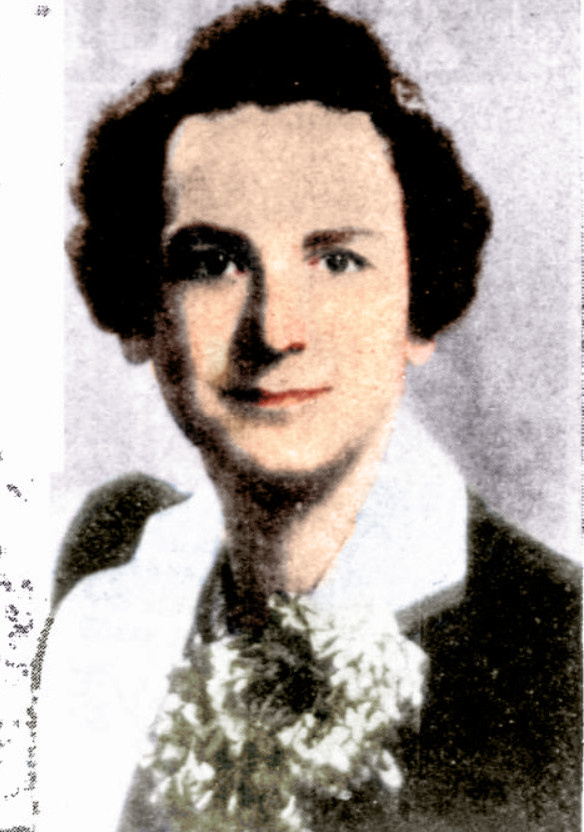KAISER SAYS SHIPBUILDERS READY TO MAKE GIANT PLANES
Await word to convert facilities
Lack of aircraft engines is current problem, probers are told
…
Lack of aircraft engines is current problem, probers are told
…
Lourenço Marques, Portuguese East Africa (AP) – (July 24, delayed)
Joseph Clark Grew, homeward bound from his mission as United States Ambassador to Japan, firmly declined to speak to either Japanese Ambassador Admiral Kichisaburō Nomura or special envoy Saburō Kurusu while the three were in this port, it was disclosed today.
They had one brief, wordless encounter on the dock, while Americans were moving from the Asama Maru, which had brought them from Japan for exchange and repatriation, to the Swedish liner Gripsholm. The Japanese were changing in the other direction.
Nomura indicated he wanted to exchange greetings, but Grew merely touched his hat and walked on.
Later, it was understood, Nomura sent word he would like to talk with the American envoy, but again Grew declined to have any contact with the Japanese.
Grew had known both Nomura and Kurusu well during his stay in Tokyo. His contacts with Nomura, especially during the latter’s brief term as Foreign Minister in 1939, were said to have been marked by mutual friendliness and confidence. Kurusu was also an acquaintance of many years’ standing. During the voyage from Japan, Grew had expressed deep disappointment over the fact that war came during his mission in Tokyo.
OWI says production is speeding up
Washington (AP) –
Acknowledging that America’s allies have failed to receive as much Lend-Lease transfers of weapons “as they need to do the job,” the Office of War Information asserts, however, the program:
…has been accelerating fast.
Announcing that transfers of all kinds of weapons to the United Nations to date are “somewhat less” than 12% of the country’s total munitions output, the agency reported yesterday that the proportion is “much higher” in games and tanks.
Need tanks, planes
Some military items, OWI added, are not needed as sorely by the Allies as the United States Armed Forces, but:
It can be said that in the things our allies need most, namely tanks and planes, the proportion of our production which is being shipped to them is much higher than the overall average.
OWI asserted $818,000,000 worth of machinery, metals, oils and other industrial materials and $841,000,000 worth of agricultural products were sent abroad up to June 30. In addition, the agency said, such services as repairing Allied warships and cargo drafts, ferrying of planes and supplying of shipping space since the start of Lend-Lease are valued at $596,000,000.
Reading Eagle (July 31, 1942)
High tribunal declares Nazi spies show no cause for their discharge by writ

Washington (AP) –
The seven alleged Nazi saboteurs lost today in their effort to escape jurisdiction of President Roosevelt’s military commission by appeal to the Supreme Court.
Chief Justice Stone announced that the court denied the prisoners’ motion to file writs of habeas corpus.
Only seven of the eight accused saboteurs sought the writ.
The court’s opinion found:
That the charges preferred against petitioners on which they are being tried by military commission appointed by the order of the President of July 2, 1942, allege an offense or offenses which the President is authorized to order tried before a military commission.
That the military commission was lawfully constituted.
That petitioners are held in lawful custody for trial before the military commission, and have not shown cause for being discharged by writ of habeas corpus.
The opinion then said:
The Court has fully considered the questions raised in these cases and thoroughly argued at the bar, and has reached its conclusion upon them. It now announces its decision and enters its judgment in each case, in advance of the preparation of a full opinion, which necessarily will require a considerable period of time for its preparation and which, when prepared, will be filed with the Clerk.
Verdict hinted next week
The military commission trying the eight prisoners heard the opening of final arguments today.
Attorney General Biddle and Col. Kenneth C. Royall, who had argued the case before the Supreme Court, came to court, however, to hear the decision, after the commission took a two-hour luncheon recess.
Biddle said arguments before the commission might be finished speedily and the commission’s verdict go to the President next week. Royall, however, said he did not know whether proceedings could be wound up that soon.
The commission set 1:30 p.m. for a resumption of the arguments.
The eight Supreme Court justices weighing the case – Justice Murphy disqualified himself because of his present service in the Army – went into a two-hour conference immediately after two days of arguments had been completed yesterday and this circumstance led to the expectation of a speedy decision. In adjourning the special term until today, however, the court made no announcement as to when its ruling would be issued.
Two questions before court
Before the court were two questions, submitted in the prisoners’ brief thus:
May the petitioners (six of whom are enemy aliens) maintain this proceeding for a writ of habeas corpus?
If so, are the petitioners unlawfully restrained of their liberty?
The parenthetical phrase was that of the defense. They contended that the youngest prisoner, Herbert Hans Haupt, 22, was an American citizen; the prosecution disputed this, contending that he had joined the German Army, in which case he would automatically forfeit his citizenship. An eighth prisoner, George John Dasch, will not seek the Supreme Court’s intercession.
In other words, Army officers, carrying out their assignment from the President to defend the prisoners, asked the Supreme Court to rule that men in the defendants’ situation could seek justice in civil courts.
Tenor of agreement
The argument before the Supreme Court indicated the tenor of the prosecution and defense pleas behind the closed doors of the military commission in the Justice Department building.
The prosecution alleged that the men left this country for Germany with funds furnished by the Nazis – Haupt traveling on a German passport attended a sabotage school there run by the Army, embarked from L’Orient, France, on U-boats equipped with extensive paraphernalia and specific instructions for the destruction of important dams, factories and other installations here and plotted a two-year campaign of sabotage to further the Axis cause.
The defense claimed that the men, all former residents of this country, were loyal to the United States, that they attended the school and boarded the submarine as the only means of fleeing Germany, that they buried their explosives in the sand upon landing, and did nothing to carry out any sabotage campaign, and that they were planning to report to the authorities.
[]
Arrival in Britain of these four officers on the staff of Maj. Gen. Carl Spaatz, Chief of the U.S. Army Air Forces in the European Theater, has been announced. L-R: Brig. Gen. Frank O’D. Hunter, to command fighter units; Maj. Gen. W. H. Frank, commander of the Air Service Command; Brig. Gen. Robert C. Candee, commander of General Ground Air Support, and Brig. Gen. Asa N. Duncan, Air Force Chief of Staff.
Arrival of high American Air Force officers viewed as significant second-front move
…

Miss Mildred McAfee, president of Wellesley College, has been named by Secretary of the Navy Frank Knox to head the newly-formed Women’s Naval Reserve, to be known as the WAVES. She will bear the title Lieutenant Commander McAfee. The photo above was taken at Wellesley and sent by telephone wire to Reading. (AP Photo)
Washington (AP) –
Dr. Mildred H. McAfee, president of Wellesley College, will be sworn in tomorrow as director of the “WAVES” – the new women’s reserve corps. She will have the rank of lieutenant commander.
Meanwhile, the Navy is preparing to begin recruiting 11,000 women who will relieve male personnel in shore stations. President Roosevelt signed the bill creating the organization yesterday.
The question of a nickname for the Women’s Naval Reserve Corps has been bothering naval officers here for weeks. In the case of the Women’s Army Auxiliary Corps the first letter of each word in the name – WAAC – was taken. The same process with the naval organization produces WNRC – an unpronounceable series of letters. They finally decided on “WAVES” and then figured out the words “women appointed for volunteer emergency service” to fit it.
1,000 officer candidates will be recruited as soon as the Navy has determined its qualifications for applicants. An advisory educational council made up of eight nationally-known women is assisting Navy official in drawing up the requirements.
The officer candidates will be given an indoctrination course at a reserve midshipman’s school to be established at an Eastern women’s college. Another may be set up in the Midwest. After the ranks of officers are filled, 10,000 enlisted women will be recruited. A training school is also planned for them.
Candidates must first submit a written request for a preliminary application blank, stating age and educational background, to the director of naval officer procurement for the city or naval district in which they reside. The offices are located in Boston, New York, Philadelphia, Washington, Richmond, Charleston, Miami, New Orleans, Chicago, Los Angeles, San Francisco and Seattle.
Interviews and tests
Applications will be mailed to candidates to be filled out and returned. Selection boards, to be named later in each district, will examine the applications and request the applicants to appear for interviews, aptitude tests and physical tests.
A small group of officer candidates will be selected immediately for assignment to administrative duties in the training program. Another group of 200 will be commissioned after a month’s instruction to perform technical duties for the Navy,
Other officer candidates will be enlisted as apprentice seamen, class V-9, and given both a doctrinal course and additional training before they are commissioned ensigns.
This is the first time in the history of the American services – Army, Navy or Marines – that women have held equal rank and received equal pay with men. A woman ensign will receive the same pay as a junior line officer, and a enlisted women the same as an apprentice seaman. This is in contrast with the WAACs, in which neither the officers nor the auxiliaries get equal pay with Army officers or enlisted men.
Force of 400,000 reported along frontier
London (AP) –
A British military source said today that Japanese forces nearly 400,000 strong were concentrating in Manchukuo opposite the 1,000-mile Soviet frontier from Lake Baikal to the Pacific, and:
There is little doubt they are planning to attack.
This source, who declined to permit identification by name, said:
The Japanese are already in position to attack whenever they choose.
Japanese engineers have used large numbers of Chinese prisoners to construct and develop road and rail communications with the present concentration areas, it was declared.
Predicting that they would make at least three drives in the north in an attempt to isolate Vladivostok, the source said:
Like all aggressors, the Japanese can strike wherever they choose along a long frontier.
He said:
August and September are the best months for campaigning in that area and the Japanese inactivity in all other spheres except the North Pacific indicates Siberia is their objective for the last half of 1942.